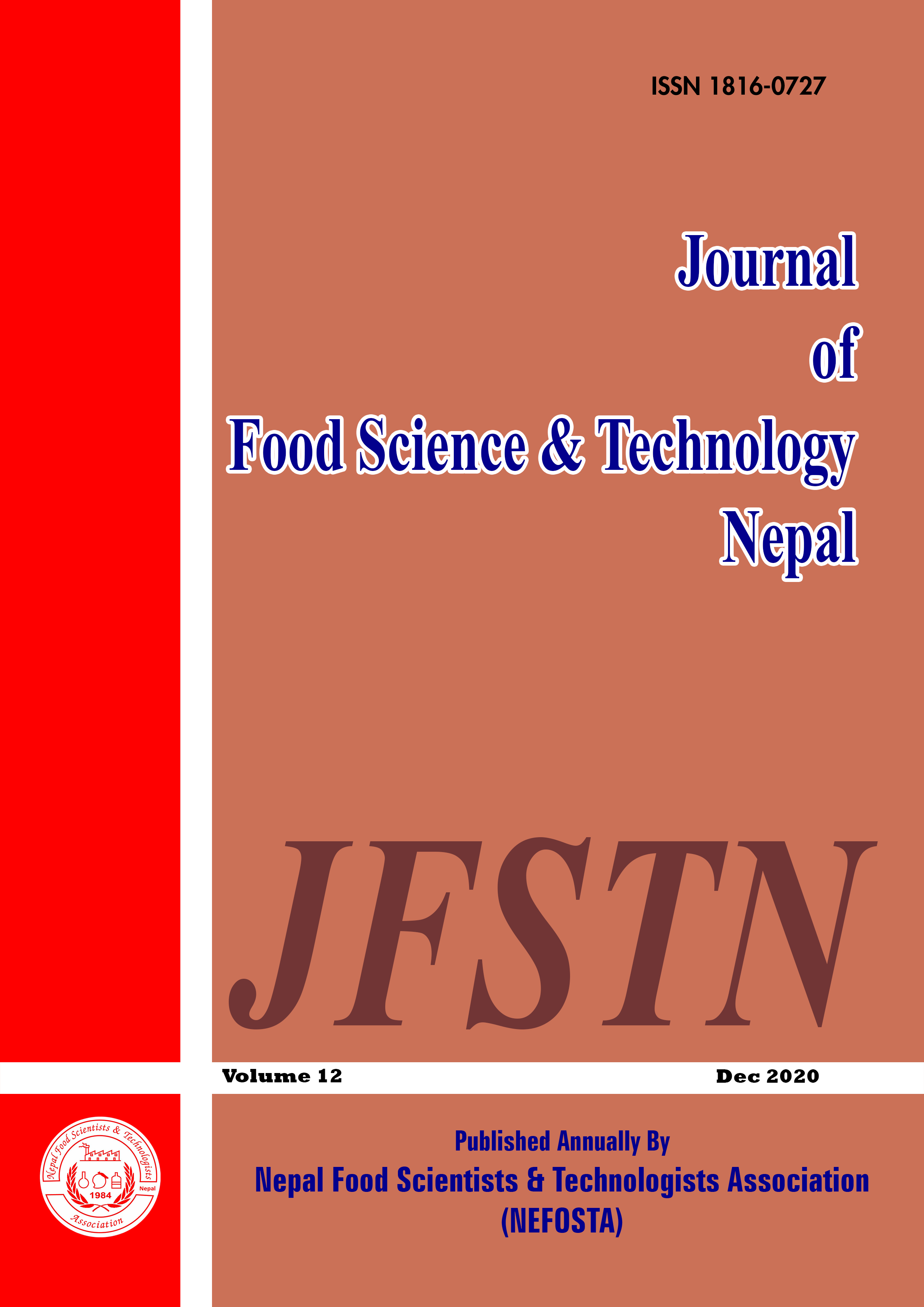Optimization of Crude Papaya (Carica papaya) Protease in Soft-Unripened Cheese Preparation
DOI:
https://doi.org/10.3126/jfstn.v12i12.30139Keywords:
Milk clotting, Papaya latex, Papaya protease, Soft-unripened cheeseAbstract
The use of plant protease instead of chymosin for producing cheese has become a trend which is aimed at lacto-vegetarian consumers and religion based ecological markets. In this context, the present investigation was carried out in order to utilize milk clotting enzyme from Papaya (Carica papaya). Numerical optimization study revealed that maximum milk clotting activity was achieved at pH 6.5, temperature 70℃ and enzyme concentration 1 g/1000 ml milk using papaya protease as coagulant. Protein, ash and calcium showed no significant (p>0.05) difference among the cheeses made using different coagulants. However, significantly (p<0.05) higher levels of moisture and ash, and lower levels of fat were observed in the cheese produced by papaya protease compared to that made using rennet. Papaya protease significantly enhanced the spreadability of cheese while the other sensory properties were similar to the control except aftertaste. The results revealed that the papaya latex as crude papaya protease may have potential application for the manufacture of soft-unripened cheese and further could be utilized as a milk coagulant in cheese making.
Downloads
Downloads
Published
How to Cite
Issue
Section
License
The author will be the copyright holder of this open access journal - 'Journal of Food Science and Technology Nepal (JFSTN)'.

